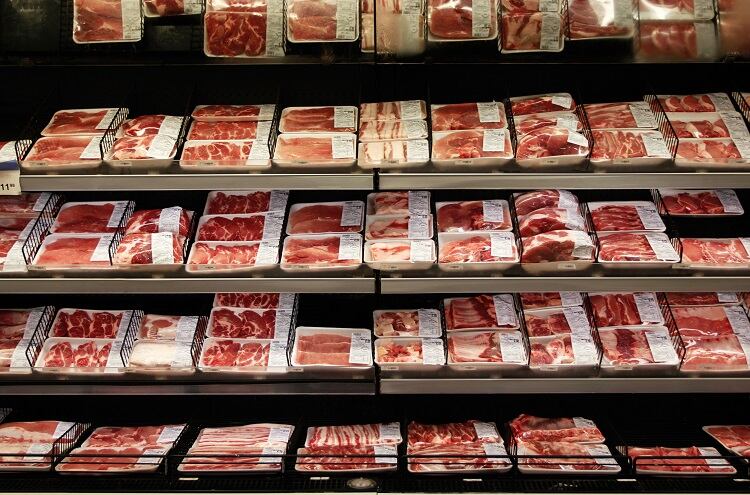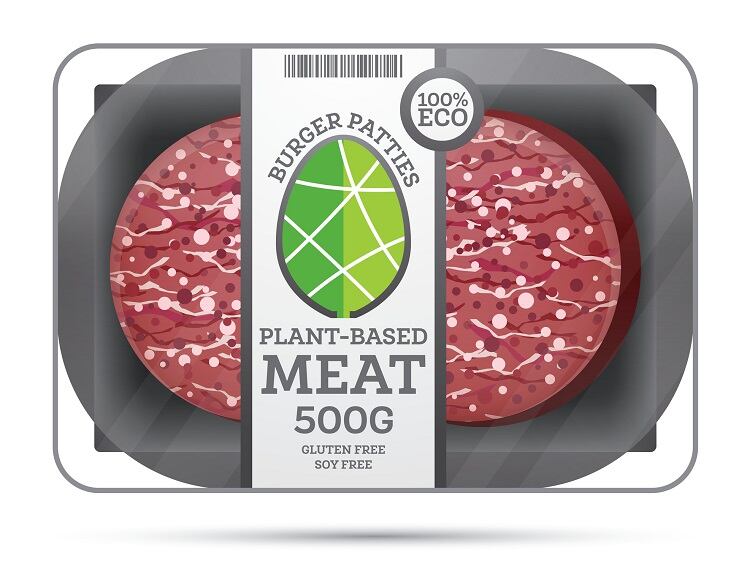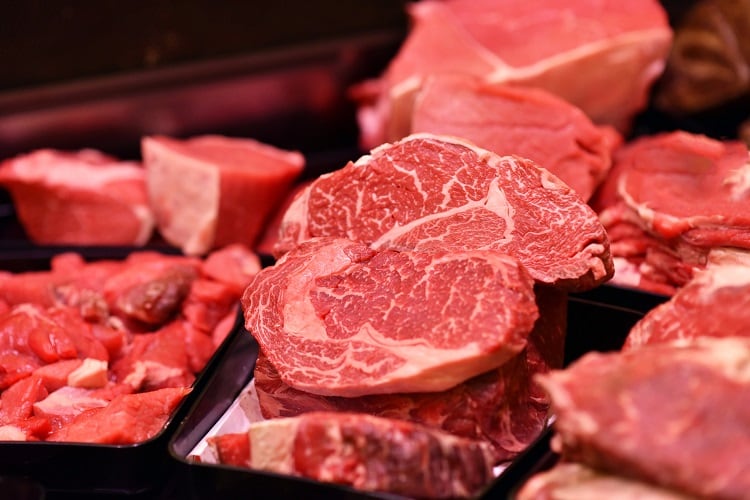Animal agriculture is responsible for 14.5% of global greenhouse gas emissions, is a key factor in biodiversity loss, freshwater use, and pollution.
As meat is considered more resource-intensive to produce than plant-based foods, pressure is mounting to reduce its consumption in the western world.
Not all consumers are succumbing to the pressure, however. In Sweden, a 2020 national survey suggested around 75% of consumers were not planning to reduce their meat intake in the coming year.
Why are some meat-eaters resisting the move towards less meat? And what can be done to encourage uptake of meat substitutes? Researchers in Sweden are investigating.
“There is currently an effort at the government level in Sweden to encourage more sustainable food consumption in the country, and one area of focus is on enabling or empowering consumers with knowledge to make sustainable food choices,” explained Dr Elizabeth Hörlin from RISE Research Institutes of Sweden’s Bioeconomy & Health Division.
“It has been established that a key part of eating more sustainably is reducing meat consumption. Given that the barriers to reducing meat consumption among Swedish consumers are not thoroughly explored, we became interested in investigating these.”
Uncertainty: ‘What’s best for the environment?’
The researchers recruited 33 participants to take part in the study. Split into focus groups based on stage-of-change and current meat consumption levels, participants discussed a range of topics relating to meat consumption and meat substitutes – which are considered potential plant-based replacements.
Four themes were uncovered. The first, reservation, suggested that among the meat-eating participants, there was a general sense of uncertainty around several aspects of both reducing meat consumption and adopting meat substitutes.
Some, for example, raised concerns about ‘potential unanticipated consequences’ of rejecting meat consumption at a larger scale. Such as what would happen to animals currently living on farms?
“It’s really difficult to see the whole picture of what you’re doing, I think. It’s always difficult to get a full picture as a consumer. Even with new products that aren’t so established on the market,” was one response. “So that you can really understand the choices you’re making – is this good for the environment in the end?”
Others expressed uncertainty around the quality, taste, and texture of meat substitutes: “You always know what you’re getting when you eat meat, you know how it tastes and more than anything else, you know you’re investing in something you recognise.
“It is a bit less certain, if you buy a vegetarian patty you end up throwing away 80% because you don’t like it.”
Scepticism, health and identity
At least ‘some level’ of scepticism to reducing meat and embracing meat substitutes was noted in a number of discussions. Arguments included that meat is ‘natural for humans’, and that meat substitutes were not as safe to eat as meat.
“We are also animals, we are made to eat meat and vegetables and other things. We shouldn’t only have one or the other. We are meant for it,” said one participant.
Concerning meat substitutes, one participant responded: “Even with a lot of soya products, they’re not fully researched, how they affect the body and stuff in the long run, because we aren’t used to eating so much of it. Gradually, it will be seen that this, that reducing meat, was wrong.”

From a health perspective, many participants perceived the nutritional content of processed products to be generally poor. Concerning plant-based meat substitutes specifically, some expressed concerns around obtaining adequate nutritional from vegetarian meals.
According to the study, products that were perceived as containing too many strange or unfamiliar ingredients, as well as seeming ‘over-processed’ or ‘artificial’, were seen as unhealthy or poor-quality options.
“That’s the hard thing, because it feels like they have put in so much other stuff in those [products] that are meat-like that I think that you don’t really need, but it is needed for the consistency and preservation and that is a shame, I think,” noted one respondent. “That there is so much other bad stuff in them, you think ‘this is better for the environment but is it really better for your body?”

Identity, including cultural associations with meat consumption, was also perceived to be a barrier to a reduction in meat consumption.
“The influence of cultural norms on what is perceived as ‘proper’ food was discussed, and that this can make it more difficult to reduce meat since meat is still commonplace in the majority of people’s diets,” noted the researchers.
For example, some participants noted it was difficult to replace certain meat-based elements of the traditional Swedish Christmas meal, such as Christmas ham.
How can uptake of food analogues be encouraged?
Could it be that plant-based products that best achieve meat mimicry are the answer to conventional meat reduction? Not necessarily. In fact, meat mimicry was perceived as ‘strange’ or ‘dishonest’ by some participants – both meat-eaters and non-meat eaters alike.
There does not seem to be a one-size-fits-all for meat substitute products, Dr Hörlin told FoodNavigator. “Some people prefer meat mimics and others prefer products that do not resemble meat too closely.”
The researchers suspect that product variety and supplication of suggested recipes is an important role manufacturers can play.
“Further, making an effort to inform consumers of the environmental impact of the products they are buying, possibly through labelling on packaging, and offering products in different packaging sizes, may also be advantageous,” she continued, adding: “with smaller product sizes, consumers may worry less about food waste if they do not enjoy a product they are trying for the first time”.
FoodNavigator also asked Dr Hörlin whether policymakers should be doing more to reduce meat consumption.
“There is evidence from previous studies that campaigns encouraging small reductions in meat consumption can lead to subsequent reductions in the longer-term,” explained Dr Hörlin.
“Such campaigns may avoid the pitfall of consumers conflating reduction and complete rejection of meat. It may be that government support for, or endorsement of, such grassroots campaigns would increase their audience and inspire change among more individuals.”
Source: Appetite
‘Identifying barriers to decrease meat consumption and increasing acceptance of meat substitutes among Swedish consumers’
Published online 10 August 2021
DOI: https://doi.org/10.1016/j.appet.2021.105643
Authors: Elizabeth Collier, Lisa-Maria Oberrauter, Anne Normann, Cecilia Norman, Marlene Svensson, Jun Niimi, and Penny Bergman.




